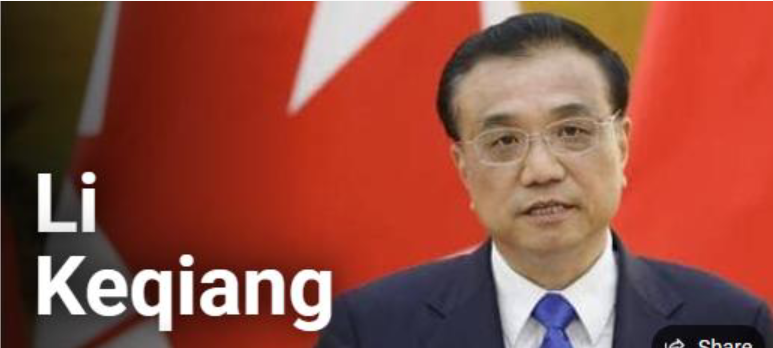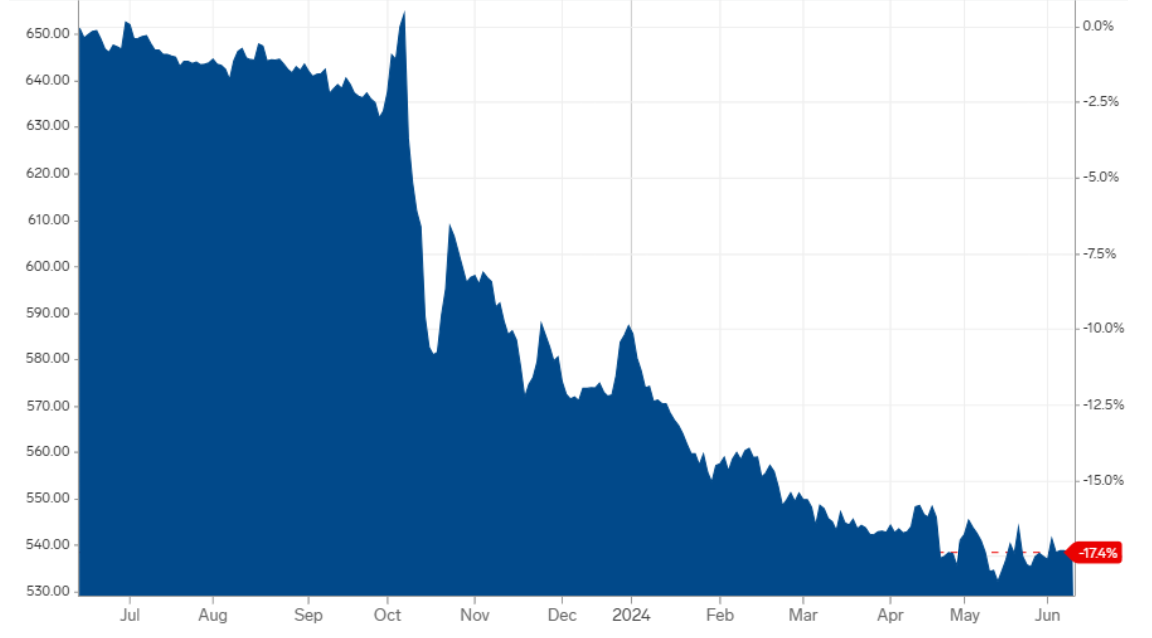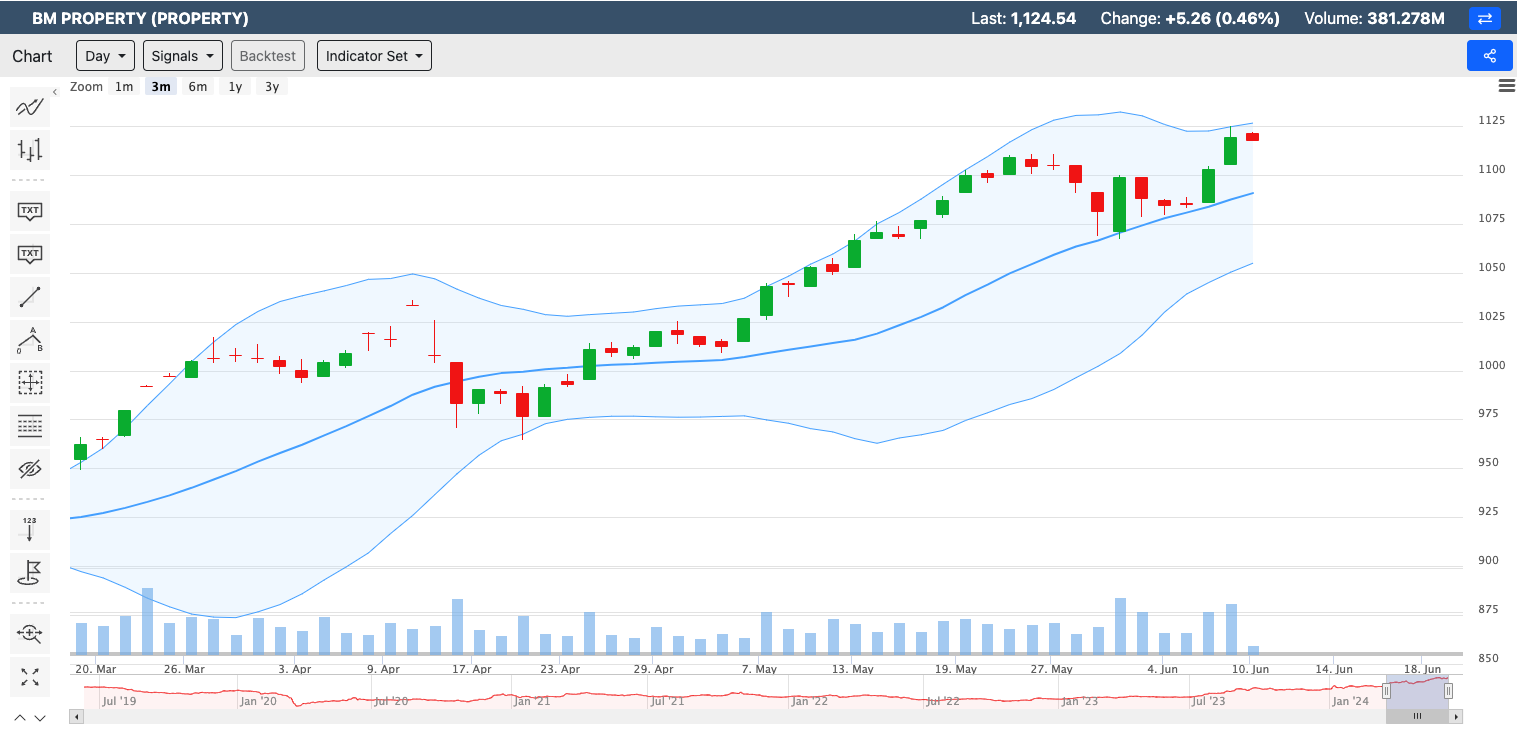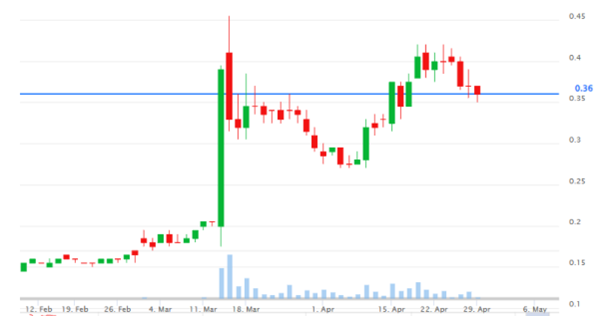How do you get heart attack and how to prevent it? - Koon Yew Yin
Koon Yew Yin
Publish date: Mon, 30 Oct 2023, 06:59 PM
Former Chinese premier Li Keqiang died on Friday after suffering a heart attack at the age of 68. Li passed away in Shanghai despite "all-out efforts" to revive him, state broadcaster CCTV reported.

Rafizi Ramli is a Malaysian politician who is currently the Minister of Economy and the Deputy President of the People’s Justice Party (PKR). He is also the Member of Parliament for Pandan, a constituency in Selangor. He is known for being a whistleblower and an advocate for transparency and accountability in the government. He recently suffered a heart ailment and was hospitalized, but he is recovering well.

Heart attacks — also called myocardial infarctions — are very common in the United States. In fact, one happens every 40 seconds, according to the Centers for Disease Control and Prevention (CDC). Several health conditions, your lifestyle, and your age and family history can increase your risk for heart disease and heart attack. These are called risk factors. About half of all Americans have at least one of the three key risk factors for heart disease: high blood pressure, high blood cholesterol, and smoking.
You can lower your risk of a heart attack by changing behaviors that can raise your risks or treating any known coronary artery disease. Healthy lifestyle changes, including heart-healthy eating, staying active, quitting smoking, managing stress, and maintaining a healthy weight, can help prevent heart disease.
How to improve your health?
Improving your health is a great goal, and there are many ways to achieve it. Here are some tips based on the results of my web search:
- Spend more time in nature. Exposure to natural environments may lower stress and prevent illness. You can enjoy nature by taking walks, visiting parks, gardening, or just sitting outdoors.
- Take a probiotic supplement. Your gut plays a crucial role in your health and well-being. Probiotics are beneficial bacteria that can improve your digestion, immunity, and mood. You can find probiotics in foods like yogurt, kefir, sauerkraut, and kimchi, or you can take a supplement.
- Avoid ultra-processed foods. Ultra-processed foods are foods containing ingredients that are significantly modified from their original form. They often contain additives like added sugar, highly refined oil, salt, preservatives, artificial sweeteners, colors, and flavors. These foods can contribute to obesity, type 2 diabetes, heart disease, and other chronic conditions. Instead, choose whole foods that are rich in fiber, protein, and micronutrients.
- Drink plenty of fluids. Fluids help transport nutrients and oxygen throughout your body, regulate your body temperature, flush out toxins, and lubricate your joints. Water is the best choice for hydration, but you can also drink unsweetened teas, sparkling water, or coffee. Avoid sugary drinks like sodas, fruit juices, and sweetened teas.
- Eat nuts and seeds. Nuts and seeds are incredibly nutritious. They are packed with protein, fiber, and a variety of vitamins and minerals. Nuts may help you lose weight and reduce the risk of developing type 2 diabetes and heart disease. You can snack on nuts and seeds or add them to your salads, oatmeal, yogurt, or baked goods.
More articles on Koon Yew Yin's Blog
Created by Koon Yew Yin | Jun 28, 2024





Created by Koon Yew Yin | May 28, 2024
It is a human nature that most men would complain to their wives that they were overworked and the wives would tell their husbands to get some assistants. As a result, the number of staff increases...
Created by Koon Yew Yin | May 13, 2024
Eversendai Corporation Berhad recently reported its earnings results for the fourth quarter ended December 31, 2023. Here are the key financial highlights:
Created by Koon Yew Yin | May 06, 2024
Eversendai Corporation Berhad made a remarkable comeback in FY2023, reporting strong profit growth. Here are the key highlights from their financial performance:

Created by Koon Yew Yin | Apr 30, 2024
As shown on the chart below, Sendai has been dropping in the last few days. Today all shareholders must be wondering to sell, hold on or to buy some at a cheaper price.
Discussions
Step 1: Don't insert unknown chemicals into your body (too late for most).
2023-10-30 23:29
AhBah you best friend wearing your gold chains will protect you from market recession or SOME SAY RECESSION. ;-)
2023-11-01 17:02
Tips:
1. Reverse aging vessels
Understanding evolution to reverse aging by activating the SIR gene and optimizing individualized stress exposure and endurance is a comprehensive approach that has the potential to reduce the risk of cancer, heart disease, and promote longevity.
Evolutionary Insights: Evolutionary biology offers us insights into how our genes, including the SIR gene, have evolved over time to protect our species and ensure our survival. By understanding the genetic and cellular mechanisms that have evolved to maintain health and longevity, we can leverage this knowledge to address aging-related health issues.
Aging and Disease Risk: Aging is a significant factor in the development of many chronic diseases, including cancer and heart disease. As we age, our cells accumulate damage, and our body's repair mechanisms become less efficient. The SIR gene is associated with DNA repair and maintaining cellular health, making it a critical target for interventions.
Individualized Stress Exposure: Stress, when properly managed, can stimulate adaptive responses in the body. Individualized stress exposure acknowledges that the optimal level and type of stress may vary from person to person. By identifying an individual's stress threshold, we can design interventions that promote health and longevity while minimizing harm.
Cancer Risk Reduction: Individualized stress exposure and the activation of the SIR gene can potentially reduce cancer risk. Chronic stress and cellular damage are risk factors for cancer. By optimizing stress exposure and enhancing DNA repair, we can lower the likelihood of mutations that lead to cancer development.
Heart Disease Risk Reduction: Heart disease is closely linked to the aging process. By promoting cellular repair and health through SIR gene activation, we can mitigate the age-related factors that contribute to heart disease. Proper stress management and endurance training can also improve cardiovascular health.
Longevity and Healthy Aging: The ultimate goal is to extend human lifespan and promote healthy aging. By activating the SIR gene, reducing cellular damage, and optimizing stress exposure, we aim to slow down the aging process and maintain health and vitality into old age.
2023-11-02 08:21
2. Normalising hsCRP
High-sensitivity C-reactive protein (hsCRP) is a marker of inflammation in the body. It is produced by the liver and released into the bloodstream in response to inflammation or infection. hsCRP levels are often measured to assess the degree of inflammation within the body, and they can be useful in various medical contexts, including the evaluation of risk factors for cardiovascular diseases like ischemic heart disease (IHD).
Inflammation and Ischemic Heart Disease (IHD): Ischemic heart disease, also known as coronary artery disease (CAD) or coronary heart disease (CHD), is a condition characterized by the narrowing of the coronary arteries that supply blood to the heart muscle. This narrowing is often due to the buildup of fatty deposits (atherosclerosis) in the arterial walls. IHD can lead to reduced blood flow to the heart, which may result in chest pain (angina) or, in severe cases, heart attacks (myocardial infarctions).
In recent years, research has indicated that inflammation plays a significant role in the development and progression of IHD. Chronic, low-level inflammation can contribute to the formation of atherosclerotic plaques in the coronary arteries. Inflammatory processes within the arterial walls can lead to the rupture of these plaques, triggering blood clot formation, and subsequently blocking blood flow, resulting in a heart attack.
hsCRP is a sensitive marker of systemic inflammation. Elevated hsCRP levels in the blood indicate ongoing inflammation in the body, even at low levels not typically detected by the standard CRP test. When hsCRP levels are high, it suggests that inflammation is present in the body.
The Evolutionary Origin of Autoimmune basis for Diseases, Mediated by Shared Last Universal Common Ancestor Antigens, Explains Molecular Mimicry and Autoantibodies Cross-Reactivity to Prevent Systemic Inflammation Leading to Damage to Insulin Receptors, Accelerated Atherosclerosis, and Ischemic Heart Disease.
Autoimmune diseases involve the immune system mistakenly attacking healthy cells and tissues in the body, leading to a range of disorders. While the causes of autoimmune diseases are complex and multifactorial, shared antigens from the Last Universal Common Ancestor (LUCA) may have contributed to these conditions, particularly in the context of insulin resistance due to damages to the insulin receptors, inflammation-mediated accelerated atherosclerosis, and ischemic heart disease.
The LUCA is the hypothetical common ancestor of all life on Earth and dates back billions of years. While LUCA and human evolution are separated by vast time scales, it's possible that common antigenic elements were conserved throughout evolution. This shared antigenic heritage may contribute to molecular mimicry and cross-reactivity in the immune system.
Molecular mimicry is a phenomenon where pathogens or foreign antigens share structural similarities with self-antigens, potentially leading to cross-reactivity. Over time, the human immune system has developed to recognize and respond to pathogens, some of which may have antigens resembling self-antigens. This mimicry can trigger the production of autoantibodies that mistakenly target self-antigens.
Systemic inflammation resulting from autoimmune responses can damage various tissues and organs, including insulin receptors, which play a crucial role in regulating blood glucose levels and preventing diabetes mellitus. By linking the origins of autoimmune diseases to shared LUCA antigens, this hypothesis suggests that understanding the evolutionary context of autoimmunity may provide insights into mechanisms to prevent systemic inflammation and subsequent damage to insulin receptors.
Low-grade systemic inflammation is also associated with accelerated atherosclerosis, a condition characterized by the buildup of plaque in arteries, and ischemic heart disease, which can result from reduced blood flow to the heart muscle. By better understanding the evolutionary basis of autoimmune diseases, we may uncover ways to mitigate the inflammation that contributes to atherosclerosis and ischemic heart disease.
2023-11-02 08:43
3. Declutter your heart cells (cardiomyocytes) by the EP program
The accumulation of glycated end products and amyloid in cells can have detrimental effects on various organs, including the heart. Autophagy, a cellular process responsible for degrading and recycling cellular components, can play a crucial role in reducing the risk of heart attack, aging-related cardiac issues, and heart failure by clearing these harmful substances.
Reduction of Oxidative Stress:
• Glycated end products and amyloid can lead to increased oxidative stress within cells. This oxidative stress can damage cellular components, including proteins, lipids, and DNA, and contribute to inflammation and aging of the heart.
• Autophagy helps to clear damaged cellular components, reducing oxidative stress and mitigating the detrimental effects on cardiac tissues.
Maintenance of Protein Quality:
• Autophagy plays a critical role in maintaining protein quality within cells. It identifies and selectively degrades misfolded, damaged, or aggregated proteins, such as amyloid.
• In the context of the heart, the clearance of amyloid can prevent the formation of toxic protein aggregates, which are often associated with cardiac diseases, such as amyloid cardiomyopathy.
Energy Homeostasis:
• Autophagy is involved in maintaining energy balance by recycling cellular components and providing nutrients when needed.
• Dysregulation of energy metabolism is linked to heart diseases, including heart failure. By efficiently recycling cellular components, autophagy can contribute to energy homeostasis in the heart.
Cardiomyocyte Health:
• Cardiomyocytes are the specialized muscle cells of the heart responsible for its contraction. Accumulation of glycated end products and amyloid within cardiomyocytes can impair their function.
• Autophagy helps clear damaged organelles and proteins from cardiomyocytes, preserving their health and function and reducing the risk of heart failure.
Prevention of Inflammation:
• Accumulated glycated end products and amyloid can trigger inflammation, which can damage heart tissues and promote the progression of atherosclerosis and plaque formation.
• Autophagy can limit inflammation by removing the triggers, thereby reducing the risk of heart attack and atherosclerosis.
Slowing Down Aging-Related Cardiac Changes:
• Aging is a major risk factor for heart diseases. Accumulation of damaged proteins and cellular components accelerates aging-related cardiac changes.
• Autophagy can slow down these aging-related changes by maintaining cellular homeostasis, reducing oxidative stress, and preserving the integrity of cardiac cells.
Reduction of Ischemia/Reperfusion Injury:
• Autophagy can also protect the heart during episodes of ischemia and reperfusion, which are associated with heart attacks. It helps clear damaged components and reduces the risk of cell death during these events.
2023-11-02 08:55
Above are 3 key tips from someone who lives over 100 years and still feel like living in his tweenish era (it's me)
2023-11-02 09:05
My best friend's gold chain around his neck is anti-inflation, anti-recession n anti-losss of purchasing power of moni ! Even anti-falling Bursa ?
2023-11-08 10:30















OnTime
try平甩功!
2023-10-30 19:31